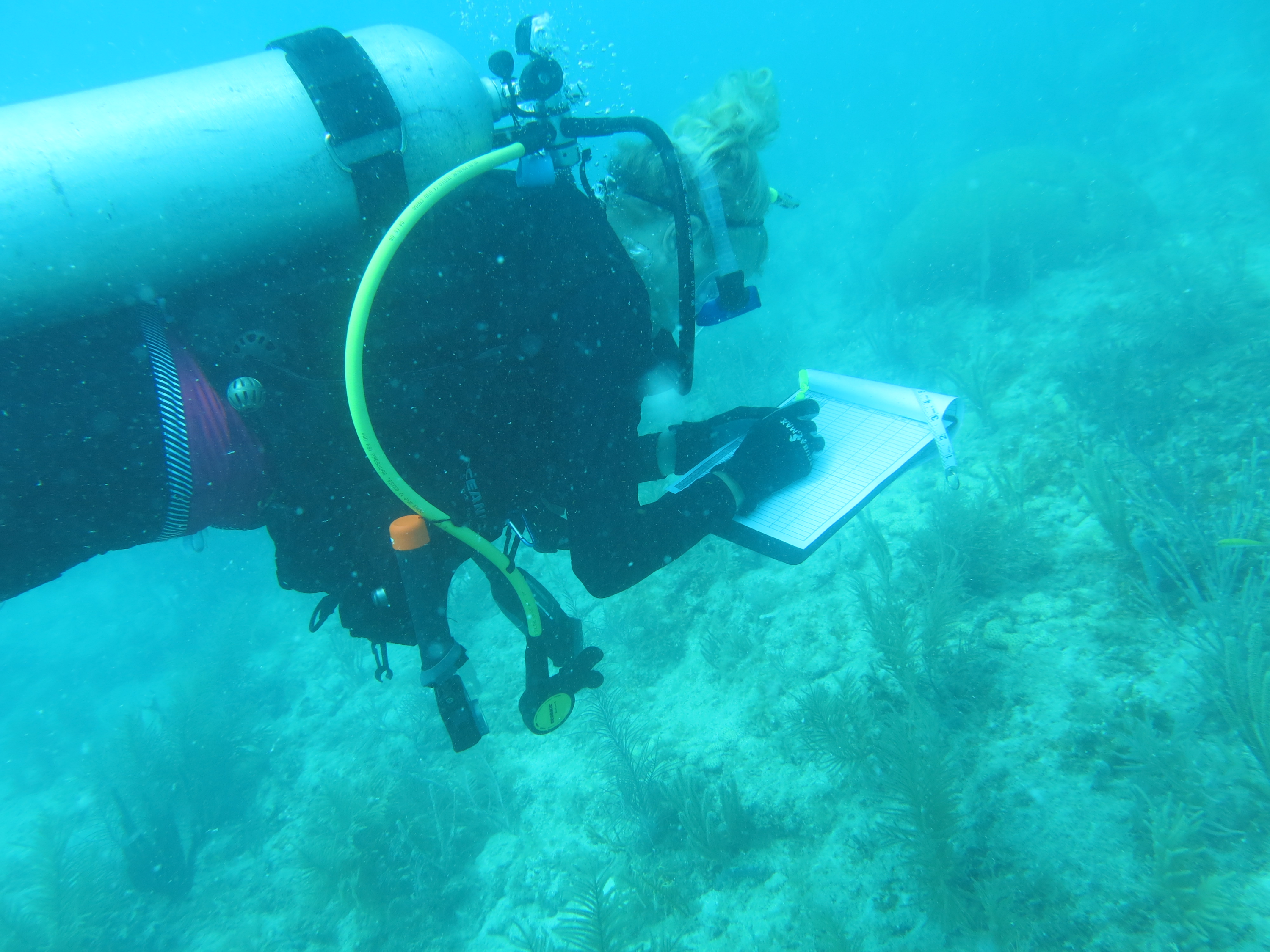The seas of Earth are facing an uncertain time, with oil drilling, coral bleaching events, and plastic pollution. However, one marine biologist has discovered that the creatures below the waves are pretty resourceful, after finding an octopus mom sheltering inside a glass bottle with her brood.
Hanna Koch was snorkeling in the Florida Keys to look for suitable places to deploy habitat support structures (also known as artificial reefs) in her role as the Director of the Artificial Reefs Program for Monroe County, Florida.
“I was swimming along, saw the bottle, picked it up intending to throw it away but wanted to make sure nothing was living inside, so I flicked out a couple of shells stuck in the mouth of the bottle and peered inside. That’s when I noticed what looked like an eyeball staring back at me,” Koch told IFLScience.
I could clearly see the mama octopus staring at me with one eye while her arms were gently wrapped around her brood of babies.
Hanna Koch
The eyeball belonged to a mother octopus, who was carefully guarding her brood inside the bottle. Another scientist suggested that the species was likely the Atlantic pygmy octopus (Octopus joubini). This species is characteristically small, with a maximum length of just 15 centimeters (5.9 inches).
“I could clearly see the mama octopus staring at me with one eye while her arms were gently wrapped around her brood of babies. The babies were fully formed, you could see their eyes, arms, and chromatophores, which are special skin cells that allow them to change colors for camouflage and communication purposes,” continued Koch.
The bottle was carefully placed back onto the sea floor so as not to disturb the octopus family.
“From my understanding, it’s not uncommon for marine life, including octopuses, to utilize human-made objects for shelter,” said Koch. “In fact, the following day I was conducting surveys in a different area and I found a stone crab hiding out in a glass jar.”
Such discoveries are concerning, Koch added. “While these are neat finds, I don’t think we should be happy about marine life using discarded materials for shelter. They deserve better.”

Koch is surveying areas of the seabed to assess the need for artificial reefs.
Image courtesy of Hanna Koch
Koch’s work focuses on the design and deployment of habitat support structures that can “increase structural complexity and provide stable, long-term, quality habitat to marine life.” Having a habitat that is structurally complex is essential to providing lots of microhabitats and niches for animals to have shelters and foraging opportunities. This can help mitigate the loss of quality habitat due to environmental stressors.
“I hope the structures we place out there will be utilized by such species and be a serious upgrade from an old beer bottle,” concluded Koch.
Source Link: Found A Glass Bottle While Diving? Take A Peek Inside – You Might Find Some Octopus Babies